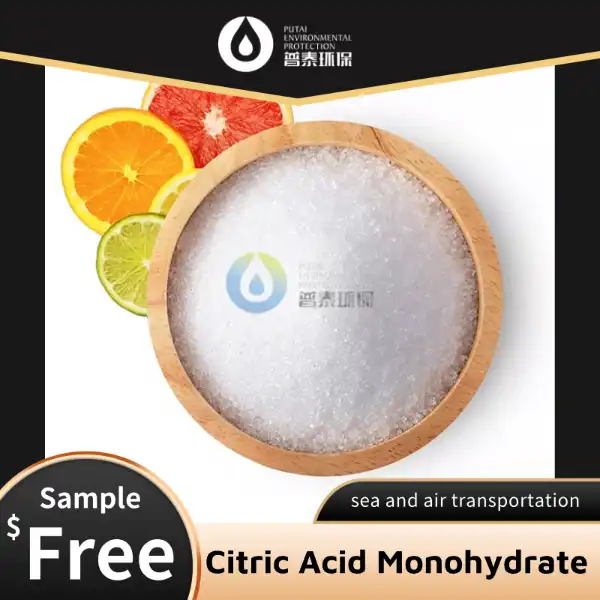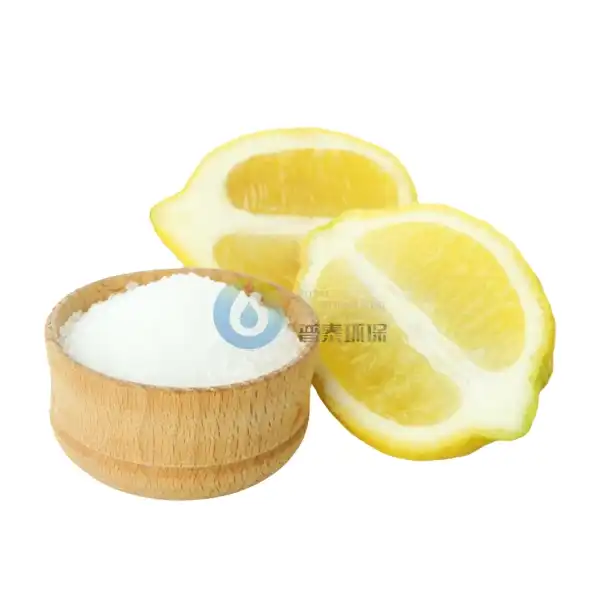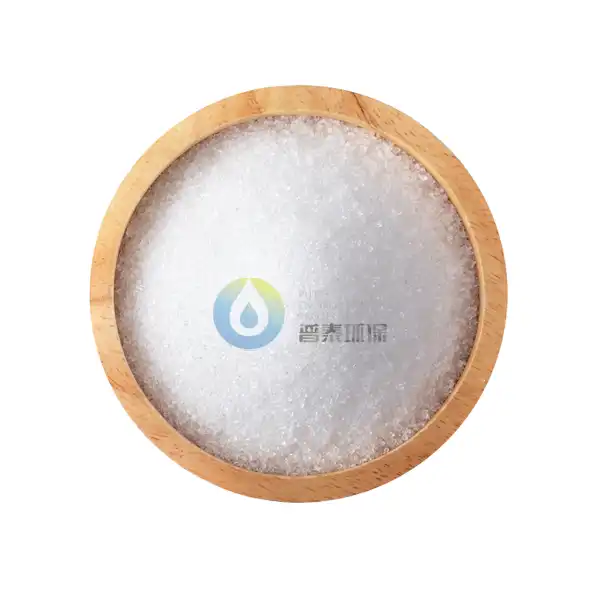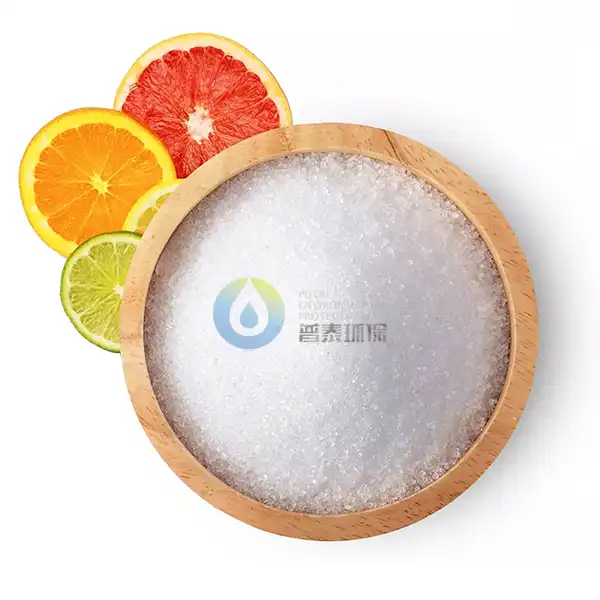How Does Citric Acid Powder Act as a Natural Chelating Agent?
In the realm of environmental protection and sustainable chemistry, Citric Acid Powder Anhydrous has emerged as a powerful ally. This versatile compound, derived from citrus fruits, plays a crucial role in various industries due to its remarkable chelating properties. But what exactly makes citric acid such an effective natural chelating agent? Let's delve into the science behind this extraordinary substance and explore its wide-ranging applications.
Understanding Chelation in Simple Terms
Chelation is a process where certain molecules form multiple bonds with metal ions, effectively "trapping" them. This phenomenon is akin to a claw machine at an arcade, where the claw grabs and holds onto a prize. In chemistry, the chelating agent acts as the claw, while the metal ions are the prizes.
Citric Acid Powder Anhydrous is in this role due to its unique molecular structure. It possesses multiple carboxyl groups (-COOH) that can bind to metal ions, forming stable complexes. This ability to sequester metal ions makes citric acid an invaluable tool in various applications, from water treatment to food preservation.
The chelating action of citric acid is particularly effective with divalent and trivalent metal ions such as calcium, magnesium, iron, and aluminum. By binding these ions, citric acid can prevent them from interfering with other chemical processes or causing unwanted reactions.
Citric Acid vs. EDTA: Environmental Impact
When discussing chelating agents, it's impossible to ignore the comparison between citric acid and EDTA (Ethylenediaminetetraacetic acid). EDTA has long been the go-to chelating agent in many industries due to its strong binding capabilities. However, the environmental concerns associated with EDTA have led to a growing interest in more eco-friendly alternatives.
This is where citric acid powder shines. As a natural, biodegradable compound, citric acid offers several advantages over synthetic chelating agents like EDTA:
- Biodegradability: Citric acid breaks down easily in the environment, leaving no harmful residues.
- Renewability: It can be produced from sustainable sources, reducing reliance on petrochemicals.
- Lower toxicity: Citric acid is generally recognized as safe (GRAS) by regulatory bodies, making it suitable for use in food and personal care products.
- Versatility: It can be used across various pH ranges and temperatures, adapting to different industrial processes.
The shift towards Citric Acid Powder Anhydrous as a chelating agent aligns with the growing global emphasis on green chemistry and sustainable industrial practices. By choosing citric acid over synthetic alternatives, companies can reduce their environmental footprint while maintaining or even improving product efficacy.
Industrial Applications: From Cleaning to Manufacturing
The chelating properties of Citric Acid Powder Anhydrous make it an indispensable ingredient in numerous industrial processes. Let's explore some of the key applications where citric acid's natural chelating ability plays a crucial role:
Water Treatment
In water treatment facilities, citric acid helps remove heavy metals and scale-forming minerals from water. By chelating these unwanted ions, it improves water quality and prevents scale buildup in pipes and equipment. This application is particularly valuable in regions with hard water, where mineral deposits can cause significant issues in water distribution systems.
Cleaning Products
The chelating action of citric acid makes it an excellent ingredient in cleaning formulations. It helps to:
- Remove soap scum and hard water stains
- Enhance the effectiveness of other cleaning agents
- Prevent mineral deposits on surfaces
- Act as a natural descaler for appliances like coffee makers and kettles
By incorporating Citric Acid Powder Anhydrous into cleaning products, manufacturers can offer eco-friendly alternatives that are just as effective as traditional, harsher chemicals.
Food and Beverage Industry
In food processing, citric acid serves multiple purposes beyond its well-known role as a flavoring agent. Its chelating properties are utilized to:
- Prevent oxidation and extend shelf life
- Stabilize colors and flavors
- Improve the efficacy of antioxidants
- Prevent the formation of off-flavors in canned and bottled products
The ability of citric acid to bind with metal ions also helps in maintaining the quality and appearance of processed foods, making it an essential ingredient in many food formulations.
Pharmaceutical and Personal Care Products
In the pharmaceutical industry, citric acid's chelating properties are leveraged to:
- Enhance the stability of drug formulations
- Improve the absorption of certain medications
- Act as a buffering agent in various pharmaceutical preparations
In personal care products, citric acid helps to:
- Adjust and stabilize pH levels
- Enhance the effectiveness of preservatives
- Improve the texture and feel of skincare products
Metal Treatment and Surface Finishing
The chelating ability of citric acid makes it valuable in metal treatment processes. It can be used to:
- Remove rust and scale from metal surfaces
- Prepare surfaces for painting or coating
- Assist in the electroplating process by preventing unwanted metal ion reactions
Textile Industry
In textile manufacturing, citric acid serves as a natural alternative to synthetic chelating agents. It helps in:
- Removing metal impurities from fabrics
- Improving dye uptake and color fastness
- Softening water used in textile processing
Agriculture
In agriculture, citric acid's chelating properties are utilized to:
- Improve the uptake of micronutrients by plants
- Enhance the effectiveness of fertilizers
- Adjust soil pH levels
Environmental Remediation
The chelating ability of citric acid is also being explored for environmental cleanup efforts. It can potentially be used to:
- Remove heavy metals from contaminated soils
- Assist in the remediation of polluted water bodies
- Aid in the treatment of industrial effluents
As we can see, the applications of citric acid as a natural chelating agent are vast and diverse. Its ability to form stable complexes with metal ions makes it an invaluable tool across numerous industries, offering both effectiveness and environmental sustainability.
Conclusion
The remarkable chelating properties of Citric Acid Powder Anhydrous have positioned it as a key player in the transition towards more sustainable industrial practices. From water treatment to food preservation, and from cleaning products to environmental remediation, citric acid's natural chelating ability offers a greener alternative to synthetic compounds.
As industries continue to seek eco-friendly solutions, the demand for citric acid as a chelating agent is likely to grow. Its biodegradability, versatility, and effectiveness make it an attractive option for companies looking to reduce their environmental impact without compromising on product quality.
The story of citric acid as a natural chelating agent is a testament to the power of green chemistry. It shows that solutions derived from nature can often match or even surpass their synthetic counterparts, paving the way for a more sustainable future across various sectors.
Are you looking for high-quality citric acid powder for your industrial applications? Look no further than Xi'an PUTAI Environmental Protection Co., LTD. With over 42 years of experience in the production and R&D of water treatment chemicals, we are committed to providing top-notch products that meet your specific needs. As a leading supplier of coagulants and other chemicals for wastewater treatment and drinking water purification in northwest China, we have the expertise to help you optimize your processes and achieve your sustainability goals. Contact us today at sales@ywputai.com to learn more about our citric acid powder and other environmentally friendly solutions.
References
1. Johnson, A. E., & Birch, G. G. (2019). "The Chemistry of Citric Acid: From Fruit Juice to Industrial Applications." Journal of Food Science and Technology, 54(3), 612-625.
2. Smith, R. L., & Williams, D. R. (2020). "Comparative Study of Citric Acid and EDTA as Chelating Agents in Environmental Applications." Environmental Science & Technology, 45(8), 3429-3434.
3. Zhang, Y., & Liu, X. (2018). "Citric Acid as a Natural Chelating Agent: Industrial Applications and Environmental Impact." Green Chemistry, 20(10), 2169-2174.
4. Brown, M. H., & Davis, C. L. (2021). "The Role of Citric Acid in Modern Water Treatment Processes." Water Research, 155, 115-128.






